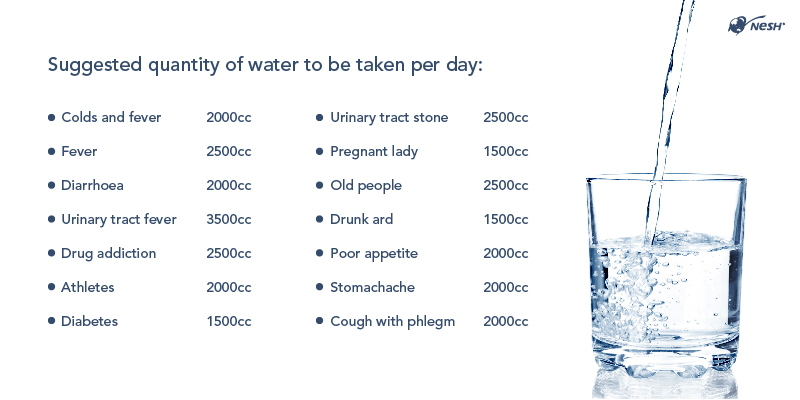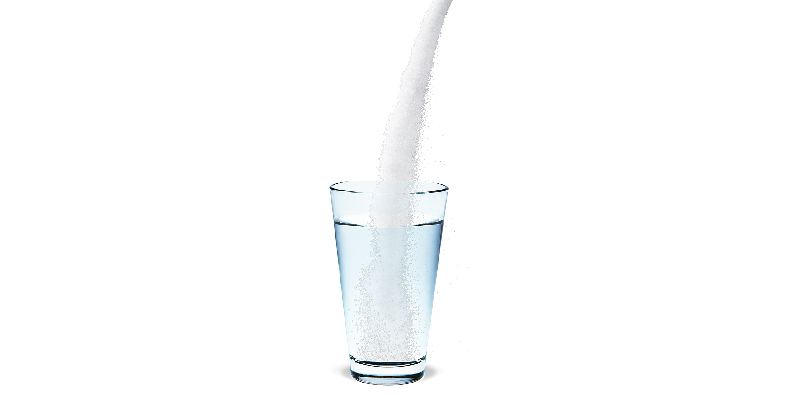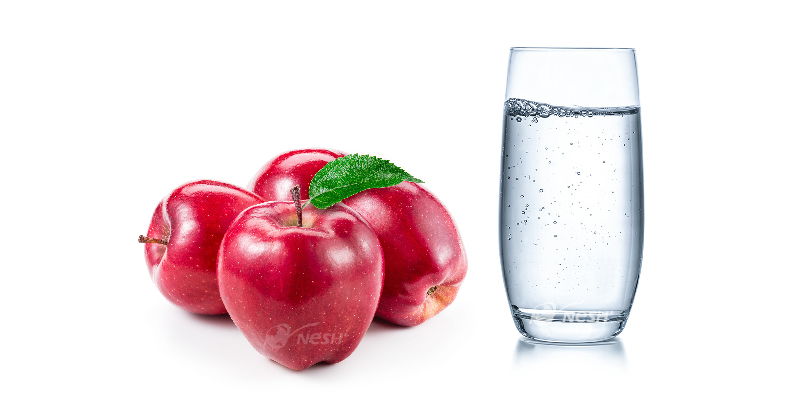Drinking 8 glasses of water a day is a general calculation that applies to an average healthy person, which means the amount of water a person needs to keep hydrated may vary according to different factors. There are people who need more than 8 glasses of water a day while others need less than that. In this article, we have summarized groups of people who should drink more water in a day for your reference.
Baby and the Elderly
Babies and infants are very sensitive to changes in body water content due to their small and light body weight. A small drop in body water content can easily lead them into dehydration. As for the elderly, their water content is lesser as compared to young adults, but they may be less aware of their water loss and need to constantly drink water to keep their body hydrated.
Physically Active
When we exercise, our body builds up heat, and our body sweats to bring the body temperature back to normal. The more active you are, the more you sweat, the more water you need to drink to keep it up.
High Protein Diet
People who are on a high protein diet need more water than a regular eater. This is because in any excess of need, the kidneys need to process and flush out ammonia from the body. The more protein is consumed, the more water the kidneys need to do the job.
High Fibre Diet
Fibre is commonly known to be good for health, but only when you consume the right amount of fibre. You may not know that a high fibre diet can cause constipation because fibre actually absorbs water from the intestine.Too much fibre eats up the water and causes bloating and gas too, worsening the constipation discomfort. Drinking more water reduces the risk of constipation for high fibre diet eaters.
Sickness with fever, sore throat, vomiting or diarrhea
Fever, sore throat, vomiting and diarrhea are signs of dehydration. Drinking more water will help regulate the body temperature better and prevent the symptoms from getting worse. It is recommended to drink 2 to 3 litres of water per day when you have these symptoms.
Long Term Health Condition
Patients with diabetes mellitus have higher risk of dehydration because when the blood glucose levels are high, the kidneys will try to flush out excess sugar through urine. Since water does not spike the blood glucose levels, it is good for patients to drink more water to ease the removal of excess glucose from the body naturally.
Drinker
Alcohol is a diuretic and it dehydrates the body at a quicker rate than other liquids. When you drink alcohol, your renal system removes water in your blood through kidneys, ureters and bladder at an accelerated rate. Without refilling promptly what is lost, your body can become dehydrated very fast.
Hot Weather
When the weather is hot, our body temperature tends to rise as a natural reaction to cool the body down through sweating. The more sweat you get, the more water you need to drink to bring it back to a hydrated level.

Dehydration is a main cause of heat exhaustion. If you fall into any of the above-mentioned groups of people, you should drink more water regularly in a day to balance your body water content to avoid dehydration and its complications.








